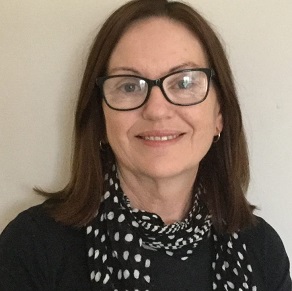The impact of anxiety in children and young people
Lots of people get stressed out or worry now and then. It is fairly normal for everyone to feel some level of worry, stress or anxiety from time to time, for example when standing up in front of the class to give a presentation. Anxiety however, is a more intense worry or fear, generally about normal everyday things or the feeling that something bad is going to happen
Anxious thoughts can become a problem when they don’t stop and start getting in the way of doing everyday things such as going to sleep, spending time with friends, going to school or even just doing fun things like riding your bike. One in five adults will experience some form of anxiety in their lifetime[1] and almost 7% of children had an anxiety disorder in the past 12 months[2].
While fear is a survival response to actual danger like a vicious dog roaming around in the street, anxiety occurs in the absence of real danger, for example worrying about a dog roaming the streets when there isn’t one out there.
Our bodies react to fear and danger whether it is real or perceived so when the amygdala in your brain senses you are in danger, a chemical reaction starts in your body which activates the body’s fight or flight response. Feelings of anxiety and fear are similar except with anxiety, there may not be any actual danger – the person just thinks there is[3].
Whilst 50% of all mental health problems start before a young person turns 14 years of age and 75% occur before the age of 25 years it is important to realise this age group are the least likely to seek help[4]
What does Anxiety look like in children and young people?
The following symptoms do not all need to be present for the young person to be experiencing symptoms anxiety[5].
- Shallow or rapid breathing, finding it harder to catch your breath or some discomfort or pain in the chest
- Pains and muscle tension in the body
- Heart pounding,
- Sweating
- Shaking in the hands or legs
- Tingling in the fingers and toes
- Feeling cold and numb
- Blurred vision
- Feeling sick in the stomach, butterflies or dry mouth
- Headaches
- Difficulty staying focused
- Feeling tired or struggling to get to sleep
- Fearful of things – perhaps thinking something bad will happen
- Feeling overwhelmed
- Panic
- Frightened to go to places
- Wanting to escape from the situation
- Anger or aggression
- Crying when overwhelmed or distressed
What can you do if your child or young person is experience anxiety?
- Talk to your child and help them find out what situations make them anxious.
- Read and find out about what anxiety is.
- Learn some gentle breathing exercises and other relaxation strategies to reduce the effects of the symptoms.
- Talk to a professional, your doctor, or a child mental health clinician or therapist.
- Ring or chat online to Kids Helpline on 1800 55 1800 or Beyond Blue on 1300 22 4636
References
[1] Centre for Clinical Interventions WA https://www.cci.health.wa.gov.au/Resources/Looking-After-Yourself/Anxiety
[2] Beyond Blue media statistics https://www.beyondblue.org.au/media/statistics
[3] Beyond Blue Mental Health Conditions in Children https://healthyfamilies.beyondblue.org.au/age-6-12/mental-health-conditions-in-children/anxiety
[4] Australian Bureau of Statistics (2008). National Survey of Mental Health and Wellbeing: Summary of Results, cat. no. 4326.0. Canberra: Australian Bureau of Statistics.
[5] Kids Helpline – What is Anxiety https://kidshelpline.com.au/teens/issues/anxiety
Author: Maree Stevens, BAdVocEd; GCert Sp Ed; M SocWk; M HumServ; GDipCouns; GCert MentalHlthPrac. 
Maree is an Accredited Mental Health Social Worker with several years’ experience working with children, young people and their families impacted by Family and Domestic Violence. Maree’s work is trauma informed and person centred, and she is able to provide psychological counselling to young children from age 5 years, as well as to teens and adults.
Maree is currently not taking bookings. Our team can assist you with placing you with another clinician. Please call Vision Psychology on (07) 3088 5422.